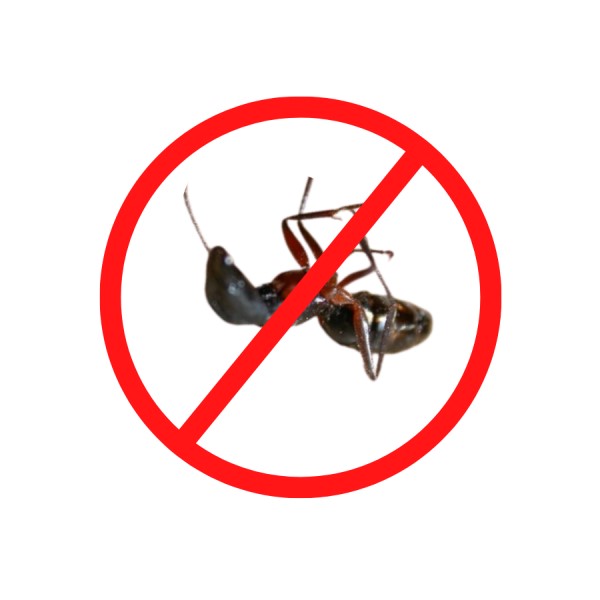Leading Ant Control Services: Trusted Solutions for Your Home or Organization
Leading Ant Control Services: Trusted Solutions for Your Home or Organization
Blog Article
Ecological Influence of Bug Control: Harmonizing Efficiency With Sustainability
The environmental impact of pest control is a crucial issue that needs a fragile equilibrium in between attaining efficiency in managing bugs and guaranteeing sustainability of our environments. From the usage of dangerous chemicals that seep into our dirt and water to the unexpected consequences on non-target varieties, the repercussions of standard insect control methods are significant.
Unsafe Chemicals in Insect Control
The utilization of hazardous chemicals in bug control positions considerable ecological and wellness dangers that call for mindful consideration and reduction techniques. Pesticides, herbicides, and pesticides are typically used to eliminate insects, however their prevalent application can lead to unintentional consequences. These chemicals can infect soil, water sources, and the air, impacting not only the targeted parasites but additionally advantageous insects, wild animals, and human beings.

To deal with these threats, integrated insect monitoring (IPM) strategies are being advertised as an extra lasting alternative. IPM includes a mix of approaches such as biological control, environment adjustment, and the targeted usage of chemicals as a last hotel (ant control durham nc). By adopting an alternative strategy to pest control, we can lessen the ecological and wellness effects connected with unsafe chemicals while effectively taking care of pest populaces
Effect On Non-Target Species
Considering the unexpected consequences of bug control techniques, the effect on non-target species is a critical facet that requires extensive analysis. While pest control steps intend to target certain insects, other microorganisms in the environment may be accidentally influenced. Non-target varieties, consisting of valuable bugs, birds, animals, and even plants, can endure indirect or direct injury from pesticide applications or biological control methods.
Pesticides can have lethal or sub-lethal results on non-target types. Pesticides created to battle a specific bug parasite might hurt pollinators like or natural predators such as ladybugs. Additionally, chemical residues can build up in the environment, influencing non-target microorganisms in time. Likewise, organic control representatives, if not species-specific, can pose dangers to unintended targets, disrupting the environmental balance.
To alleviate the influence on non-target varieties, integrated bug monitoring (IPM) approaches that highlight a holistic method to pest control are advised. These methods focus on using ecologically pleasant techniques, decreasing injury to advantageous microorganisms while effectively taking care of pest populations. Carrying out thorough threat evaluations and keeping track of the outcomes of parasite control efforts are crucial steps in securing non-target species and promoting total environment health.
Dirt and Water Contamination
Unintentional ecological consequences of pest control methods expand beyond affecting non-target varieties, with significant effects for dirt and water contamination. Chemicals, herbicides, and chemical plant foods used in insect control can seep right into the dirt and contaminate groundwater, presenting a hazard to both terrestrial and aquatic environments. Dirt contamination can disrupt the balance of microorganisms necessary for nutrition cycling and plant development, causing reduced dirt fertility and efficiency. These chemicals can linger in the setting for extensive durations, gathering in the dirt and potentially going into the food chain.
Water contamination is an additional important issue related to insect control techniques. Overflow from farming areas treated with pesticides can carry these chemicals into nearby water bodies, influencing aquatic microorganisms and water top quality. Pollutants in water sources can have far-ranging consequences, influencing not just marine life but additionally human health with the consumption of infected water or water microorganisms. To reduce soil and water contamination from parasite control tasks, integrated pest administration techniques that prioritize sustainability and reduce chemical inputs are crucial.
Air Contamination From Chemical Usage
Direct exposure to air-borne pesticides throughout agricultural applications presents a substantial concern for air pollution control actions. In addition, chemical drift, where chemicals are brought by the wind to unplanned areas, can lead to the contamination of nearby ecological communities and water bodies.

Approaches for Lasting Insect Control
In the world of agricultural methods, carrying out lasting parasite control methods is extremely important for keeping ecological equilibrium and guarding crop returns. Sustainable parasite control emphasizes using ecologically friendly approaches to handle bug populaces efficiently while reducing damage to non-target microorganisms and communities. Integrated Insect Management (IPM) is a commonly adopted technique that combines biological, cultural, physical, and chemical control methods to achieve lasting bug management remedies.
Crop turning and diversity are likewise reliable methods to interrupt pest life cycles and create less positive problems for parasites to thrive. Ultimately, by integrating these lasting parasite control techniques, farmers can accomplish an equilibrium in between pest administration efficiency and ecological stewardship.
Conclusion
Finally, the environmental effect of bug control techniques need to be carefully considered to stabilize performance with sustainability. Damaging chemicals utilized in insect control can cause soil and water you can find out more contamination, air pollution, and injury non-target types - termite control. It is critical to implement lasting bug control methods to reduce these unfavorable impacts on the environment and promote a healthier environment for future generations
By adopting an alternative method to pest control, we can decrease the environmental and wellness impacts linked with damaging chemicals while properly managing pest populations.

To reduce the air contamination caused by chemical usage, it is important to adopt integrated pest administration methods that focus on the use of non-chemical parasite control methods, such as plant rotation, all-natural predators, and immune crop varieties. Lasting parasite control emphasizes the usage of eco friendly techniques to take care of pest populaces properly while reducing injury to non-target microorganisms and ecosystems. Integrated Insect Administration (IPM) is a commonly embraced strategy that incorporates biological, social, physical, and chemical control methods to accomplish long-term insect monitoring options.
Report this page